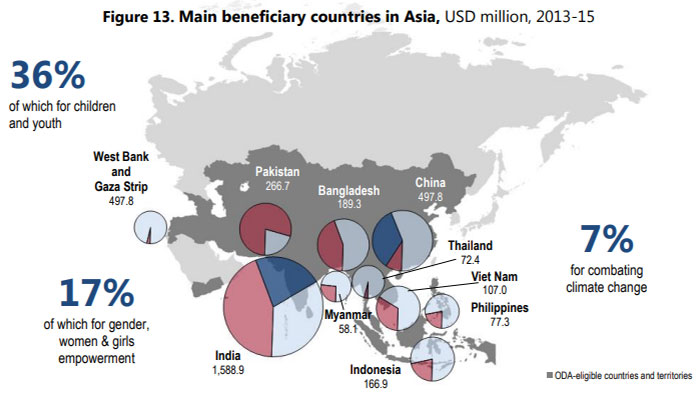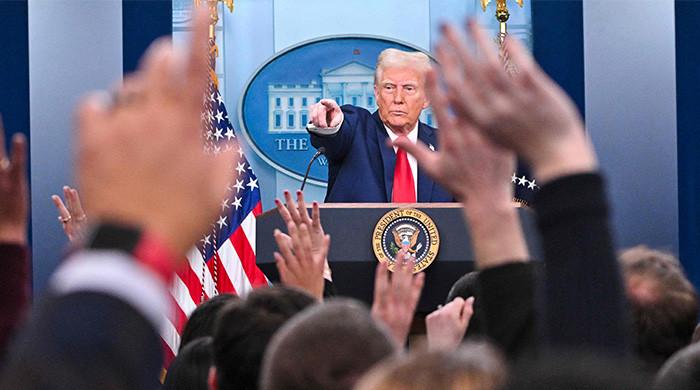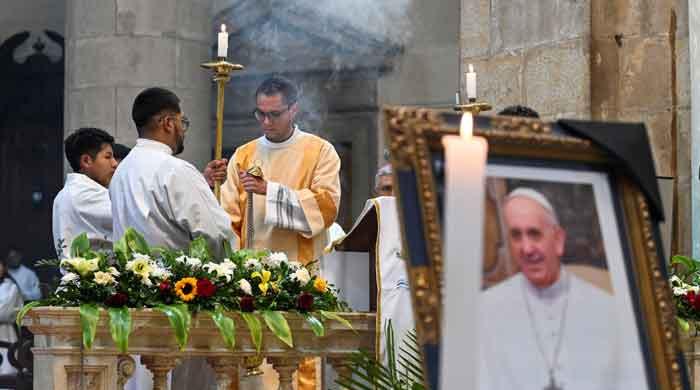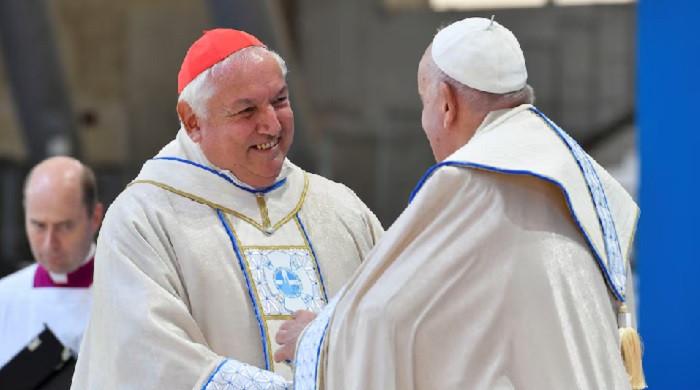Pakistan at number 12 on humanitarian assistance list
The report released by OECD states Pakistan received nearly $266,658.7 during 2013-2015
April 11, 2018

A report released by the Organisation for Economic Co-operation and Development (OECD) has stated that Pakistan stands at number 12 on the list for humanitarian assistance.
Private foundations provided $23.9 billion for development between the years 2013-15, corresponding to five per cent of the amount given through Official Development Assistance (ODA).
Pakistan accounts for around $266 million from private foundations such as the Bill and Melinda Gates Foundation (BMGF).
Philanthropic flows from foundations provide substantial support to sectors such as health. In 2013-15, foundations were the third-largest source of financing for developing countries, following the United States government and the Global Fund to Fight AIDS, Tuberculosis and Malaria, the OECD website reports.
Almost threequarters of giving originated from foundations based in the United States, largely due to the BMGF’s share of funding. Other top countries which are included for philanthropic funding for development are the United Kingdom (seven per cent), the Netherlands (five per cent), Switzerland (two per cent), Canada (two per cent) and the United Arab Emirates (two per cent).
The report finds that 67 per cent of philanthropic giving goes to middle-income countries such as India, Nigeria, Mexico, China and South Africa.
BMGF stands on to when it comes humanitarian efforts, accounting for nearly three-quarters of the flow of humanitarian aid to Pakistan.
Pakistan received a total of $266.6 million from private foundations for developments. Out of this, around $238.8 million was spent on social infrastructure and services, $18.3 million on economic infrastructure and services while the production sector took up $6.3 million.
Humanitarian assistance takes up $2.7 million with $0.3 million being put under the category of 'other' during the year 2013-2015.
Countries that receive more aid than Pakistan include China on top of the list which receives around $497,778.6 followed by Indonesia at $166,886.6 and India at $1,588,918.7.
Global figures
However, rich nations that have spent on helping poor or developing countries last year have spent less on refugees which has led to stagnation in overall aid expenditure remaining well below United Nations’ targets.
The figures which were released recently showed that ODA was $146.6 billion, down 0.6 per cent from 2016, according to the OECD.
The slight decrease was due mainly to a near 14 per cent drop in the amount spent on hosting and processing migrants and refugees in rich countries, which cost a total of $14.2 billion in 2017, the Paris-based think tank said.
ODA excluding refugee costs rose about one per cent.
“Overall the core aid is going up,” the OECD’s head of aid statistics Yasmin Ahmad told the Thomson Reuters Foundation.
Bilateral aid to the world’s poorest countries climbed four per cent to $26 billion after years of decline; humanitarian aid rose by 6.1 per cent to $15.5 billion.
The OECD said the United States remained the largest donor in 2017 giving $35.3 billion, followed by Germany, Britain, Japan and France.












